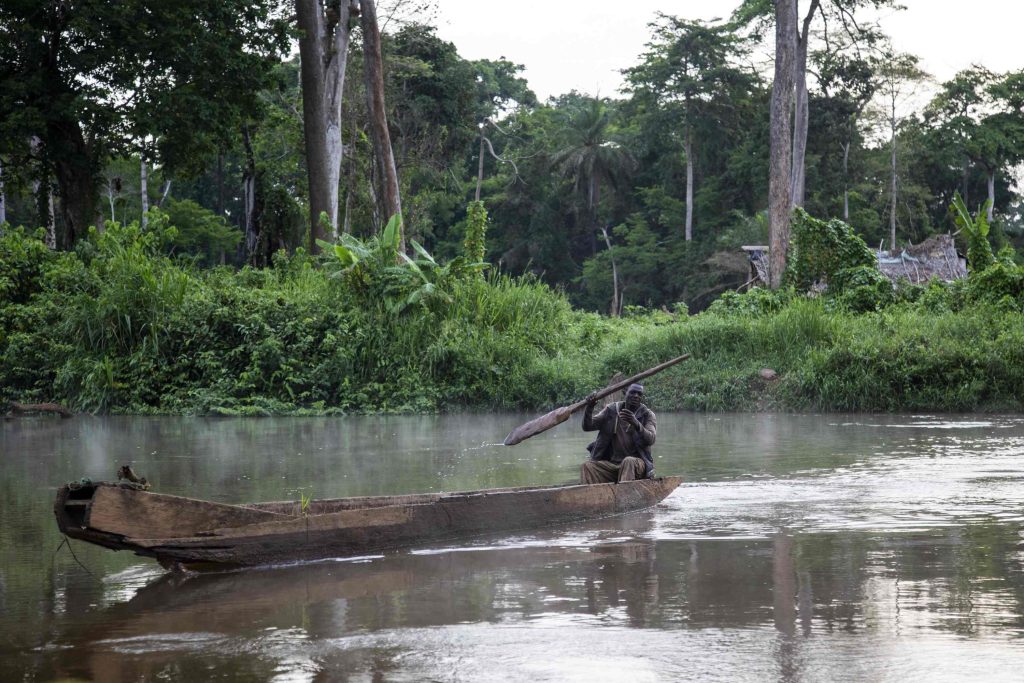
Kuete David on his pirogue on the river Mbam. Dominique Catton. Credit: SightsaversG
Sightsavers and the Walker Institute at the University of Reading have teamed up on a new research project that will look at how climate change could affect the reach of neglected tropical diseases (NTDs) in Malawi.
Professor Rosalind Cornforth and Dr Cathie Wells were delighted to be able to present an Introduction to Climate Change to the Sightsavers Research Team Meeting on 31st October at the Sightsavers headquarters in Haywards Heath.
The session began with a brief summary of the experience and expertise of the Walker Institute in interdisciplinary projects, touching on the guiding principles and ethos of this work. This was followed by an explanation of what climate change is all about, how we deal with the uncertainties inherent in our projections, the ICECCAP (Implementation Centric Evolving Climate Change Adaptation Process) methodology and the use of ICICLE (Inclusive Consultative Integrated Climate, Livelihoods and Environment) storylines in assessing and communicating risk.
From here a brief overview of the Climate Health in Africa Integrated Risk Research project was presented to launch this new initiative, focussing on the need to create a fine resolution picture of climate effects that will have a bearing on the spread and severity of neglected tropical diseases in the future. After a useful and constructive discussion on this new project, there was a further exploration of how Sightsavers and the Walker Institute can work together further in the future.

